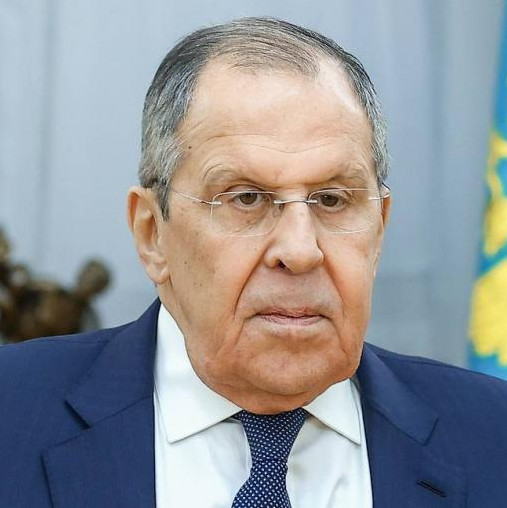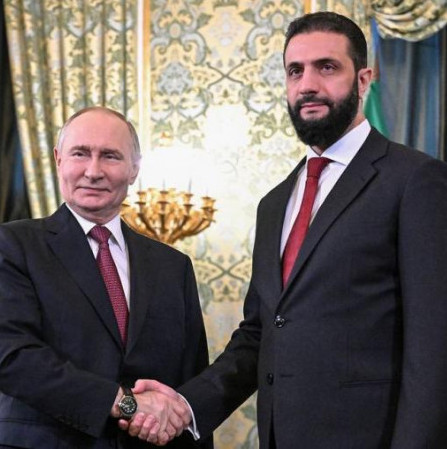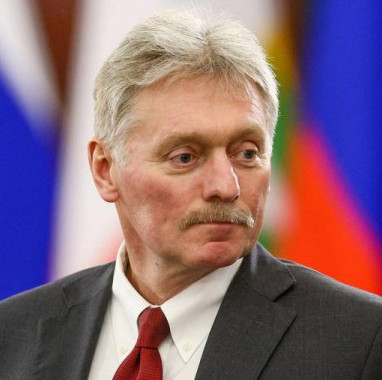
After analyzing the situation in Russia before and after the parliamentary and presidential elections the known analytical centres of the West published their forecasts concerning the development of the situation in the country and its relations with the Western World after the Putin election as President.
Thus, the Stratfor Analysis Agency, called in the U.S. “the shadow CIA”, which analyses military, political and economic developments for the White House issued a memorandum on the situation of post-election protests in Russia. According to experts (most of which are the former leading professional analysts of the CIA and the Pentagon), “the media (especially in the West) are actively promoting the view that Putin’s power is under threat, despite the fact that many in Russia see the situation quite differently".
The experts reminded that “Washington has increased the scope of its financial assistance to groups inside Russia by allocating $9 million in the last two weeks alone” after the presidential election. “Such tactic for the United States is not new. They have a multi-billion dollar budget for funding and support of non-governmental organizations, media and other organizations and groups operating in Russia,” said Stratfor. The United States Congress in 2011 refused indeed to reduce the funding of Russian opposition media and NGOs, amounting to $70 million annually.
According to Stratfor, the reason for such “participation” of the U.S. in Russian protest activity is the increased influence of the Russian Federation in Central Europe (apparently European missile defense and Europe’s dependence on Russian raw materials are meant). The West simply wants to “divert” and “tie up” the Russian authorities by internal problems and to weaken its influence in Europe.
In another article, Stratfor experts have openly hinted, where nongovernmental organizations should intensify their activities in order to weaken Russia’s influence. First of all, these are de facto independent but unrecognized by the international community Transdnistrian Moldovan Republic, the Republic of Abkhazia, the Republic of South Ossetia and Nagorno-Karabakh Republic.
According to analysts, these self-proclaimed formations of the former Soviet Union need a foreign patron to ensure their independence, and Russia needs them as a lever against the former Soviet Republics.
Of course, it is useless to tell these experts about the existence of many UN member states, with far less resources and small population. Eventually we are talking about regions where it is easy to disrupt stability in order to draw Russia into an international conflict.
Russia has a strong military presence in each of these republics, except the Nagorno-Karabakh, says Stratfor. South Ossetia and Abkhazia “share” about 7000 Russian militaries; about 1100 servicemen are stationed in Transdniestria. Although Russia has no military bases in Nagorno-Karabakh, it has a base in neighboring Armenia, from where if necessary it is easy to redeploy military forces to the territory.
The position of Russia in these areas is strong, analysts say, and Russia is not interested that these areas once again join their former patrons, because Moscow will then lose a lever of pressure. The experts from Stratfor intelligence-analysis firm just recommend drawing attention to the need to “work” in these regions.
Experts from the Royal Institute of International Affairs, Chatham House, believe that the situation in Russia can lead to “an uncontrollable course of events”, and this may have negative consequences for Europe and the international community. Such forecast is contained in a report published ahead of presidential elections and titled “Putin again. Implications for Russia and the West.”
It should be emphasized that the report has strongly anti-Russian orientation, and, despite a number of fair comments about the existing shortcomings in Russia, has a purely British peremptory tone.
Concerning relations between Russia and the United States after the return of Vladimir Putin, the report states that the “reset” of these relationships has proved devoid of specific content. Chatham House analysts warn Washington “to be careful” in manifestation of its positions, taking into account Moscow’s “erroneous point of view” of the world. The advantage may be the removal of irritants such as the Jackson-Vanik amendment the Russian officials consider “hostile”, and effective cooperation with Russia in the process of its accession to the WTO. In addition, Washington would be better to avoid expressions like “great power” in relation to Russia and instead to mention of it in a separate category equally with the U.S..
As regards the internal situation in the country, the analysts of the Institute believe that the ability of the Russian state structures to cope with new social and economic challenges is becoming more doubtful. Real change, meaning the transparency of government relations and decentralization of power, can only cause a dysfunctionality of the system. But without a real change Russia is doomed to stagnation.
According to the report authors, the elected State Duma is illegitimate, which, in turn, deprives the right of Putin to claim the role of national leader and weakens his legitimacy. A prospect of discrediting the presidency has appeared. The experts believe that the election of 2011-2012 was “the beginning of the end of Putin’s regime.”
Alongside with that, the experts point out the immaturity of opposition, “ its inability to move from protest to an efficient organization.” The power, in turn, is incapable of reform from above too, creating risks “for the future of the Russian state, and even the former Soviet Union.”
Chatham House experts express doubts about Russia’s ability to act as a “serious weight category” at the international level. Moreover, Russia’s positions have weakened in all areas - western, southern and eastern. the West is disappointed with Russia’s inability to become “more responsible international player.” Russia’s relations with its eastern neighbors are characterized by “lack of mutual respect and trust.” On the southern borders all the newly independent states are trying to break free from the influence of Moscow.
The report concludes by posing a number of recommendations for the U.S. and Europe. In particular, they advise to “overcome the illusion that for normal relations with Russia it is sufficient to establish good personal relations with the Russian leader.”
They are convinced that relations with Russia should be based on three basic principles:
1. The Western society can not support assertions that Russia has its own unique set of principles, because they serve as “justification for the Russian elite to act at its discretion.” The West should focus on the integration of Russia into a liberal world system with internationally accepted principles.
2. The West should not support Moscow’s claims to special rights in relation to the former Soviet Republics. Justifying the argument that being a “Great Power”, Russia has a higher status than other European countries, means to accept the disadvantaged status of these “other” states.
3. It is necessary to persuade Russia to keep its word. And fulfill its obligations under the entire set of international conventions it has signed. Russia’s accession to WTO should be a serious test of Moscow’s ability to comply with international standards.
The principles are controversial but they are purely British.
In the same vein is the speech of the president of the Jamestown Foundation Center Glen Howard (USA). Interaction with Putin would be a «difficult challenge” for the Obama administration, the president believes. The reception given to the new U.S. ambassador to Moscow, McFaul, has put the White House on a very “shaky ground” and forced to think about “recalibration” of cooperation with Russia, headed by new president. The Obama administration will have to make serious efforts to focus on key strategic objectives in its relations with Russia, and in this sense Russia’s accession to WTO will play a significant role, says Howard. Besides, the White House may also face internal difficulties – it will be much harder for the Obama administration to push through Congress the documents relating to Russia, because “Congress is well disposed towards Russia, but does not like Putin.”
Howard believes that President Putin’s strategy in relation to the neighboring countries will be directed to the completion of the reintegration process; most likely, this policy will be of more aggressive nature. In his opinion, Georgia is in first place on Mr. Putin’s list of unfinished business. In an effort to determine the influence in this country Vladimir Putin’s administration will use “any means - from political instability to direct diversions.” Caucasus will remain for President Putin a key region, in which the Russian president will try to keep the influence at any cost, and perhaps, by new wars.
It should be added that the European Council on Foreign Relations at a meeting on February 27, adopted a document in which satisfaction is expressed with the significant progress achieved within the framework of the Eastern Partnership program and the strengthening of EU relations with Armenia, Azerbaijan and Georgia.
Another section of the paper is devoted to the peaceful settlement of conflicts in the region: “The EU reiterates its firm support for the sovereignty and territorial integrity of Georgia within its internationally recognized borders, and reiterates its concern over the continued presence of Russian troops and their infrastructure, support for the separatist regions of Abkhazia and South Ossetia.
The EU calls on Russia to fulfill its obligations under the ceasefire agreement of August 12, 2008 and implementation of measures of September 8, 2008. The EU also expresses its concern about the slow progress in negotiations between Armenia and Azerbaijan on the Nagorno-Karabakh conflict.”
It seems that none of these experts know who was the true aggressor in the conflict in Transdniestria and the Caucasus. Their banner is Hillary Clinton’s statement that the U.S. will never recognize the “occupation of Georgian territories.” According to her, “this is a very firm position of the U.S.”
The current leaders of Moldova are having this same thought about Transdniestria while Baku dreams of the territory of Nagorno-Karabakh, despite the predominance of Armenians in it.
It should be assumed that in the near future in all the “separatist” republics the “non-systemic opposition” will begin to emerge, guided by foreign patrons. Except Russia, of course.
Research centers’ reports and memoranda show that the West will follow the anti-Russian course in foreign policy. Russia is needed for some Western countries only as a source of raw materials. Its ambition to pursue the national oriented policy, to modernize and develop its own production is given a hostile reception.
Putin’s election as President was received by leaders of major Western countries rather coldly, and President Barack Obama congratulated him only on March 9.
Throughout 2011 the Western media subjected the Russian prime minister to harsh criticism, which was also aimed at destabilizing the situation in the Russian Federation.
After the election, the same circles and analytic centers under their control began to prepare the world community to a confrontation with Putin. All his election articles were criticized severely, he is charged with anti-Americanism and nationalism. Our president is even reproached for his repeating the words of the Russian Chancellor Gorchakov “Russia concentrates”, and those of the Emperor Alexander III “Russia has only two allies – its army and navy.” Such statements, according to Western analysts, “signify an unfriendly foreign policy, the “crackdown” and hard times - and they will be uneasy not only for the opposition, but also for the Russian people, its leaders and international partners, including Washington.”
It should be assumed that President Putin will face a great and difficult job in solving internal socio-economic problems and those in foreign policy.


